AMD EPYC 7551P Test Configuration
By the end of September, had every AMD EPYC SKU tested on a common Tyan EPYC platform and work started on another platform. Here is the base hardware configuration we are using:
- CPU: AMD EPYC 7551P
- Server Barebones: Tyan Transport SX TN70A-B8026 (B8026T70AE24HR)
- RAM: 8x 16GB 128GB DDR4-2666 RDIMMs (Samsung)
- SSD: 1x Intel DC S3710 400GB SATA SSD
- NIC: 1x Mellanox ConnectX-3 Pro
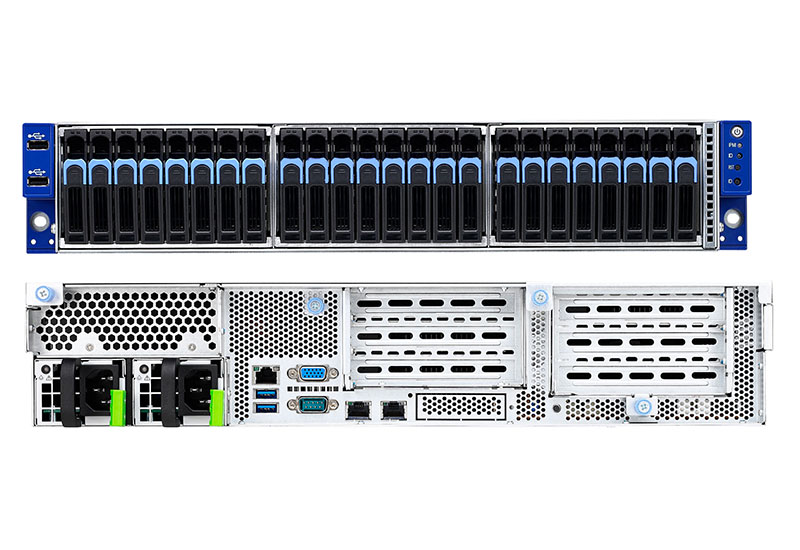
Key to this system is that it supports 24x NVMe U.2 NVMe SSDs without using Broadcom PLX PCIe expanders. That is 96 lanes of PCIe 3.0 directly from a single SKU. One of the key advantages AMD EPYC has is that a single EPYC CPU can use 128x PCIe lanes, the same number as the dual socket configuration. Tyan has responded to this opportunity by offering a single-socket system that can handle 24x NVMe drives plus have I/O available for 10/25/40/50/100GbE.
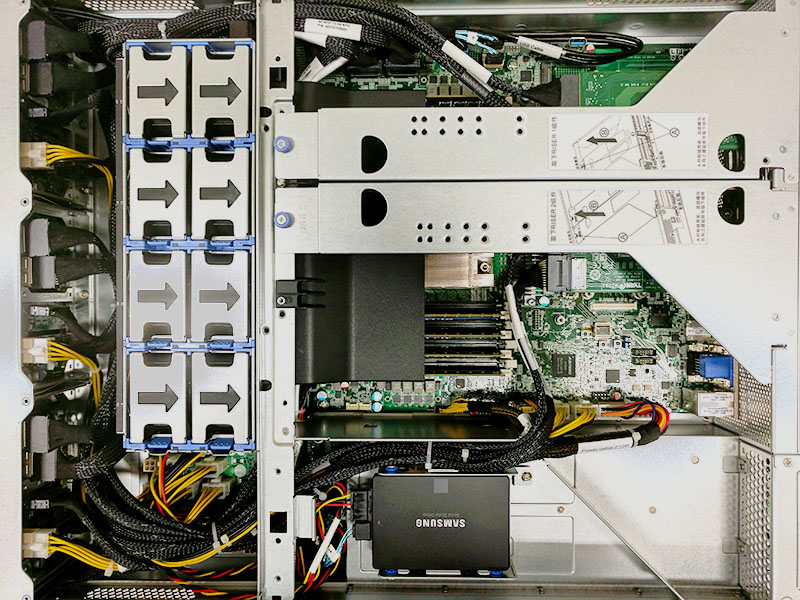
AMD and Tyan originally suggested that we use a Samsung SSD (as pictured), however, to aid in consistency, we are using our lab standard Intel DC S3710 400GB SSDs.
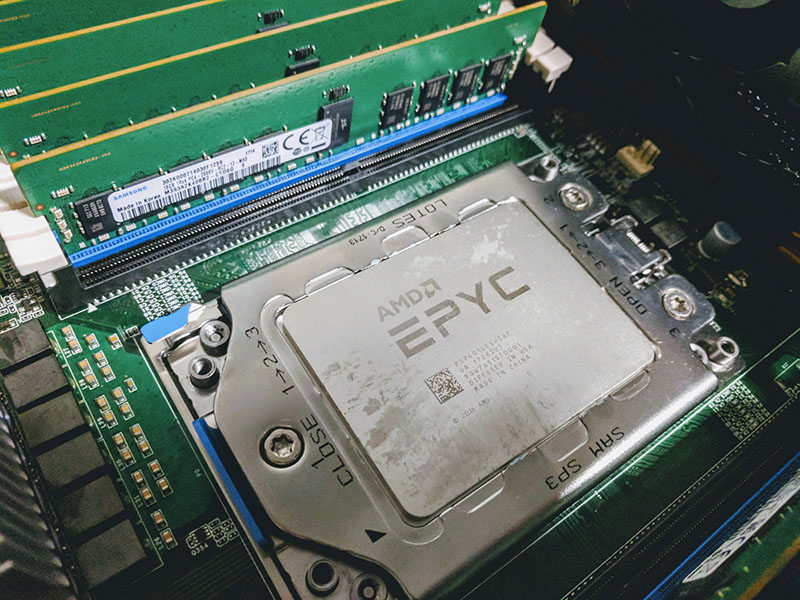
This is a great system that has worked well over the past several quarters. If you have an existing Intel Xeon E5 V1-V4 installation, it is likely that a single socket AMD EPYC 7000 series machine using NVMe drives can replace a dual socket or multiple dual socket previous generation servers. We have seen companies consolidate as many as four dual socket Intel Xeon E5-2620 V1 servers into a single AMD EPYC 7000 series server which is a great consolidation saving.
Next up we have our AMD EPYC 7551P benchmarks followed by power consumption, market positioning, and our final thoughts.

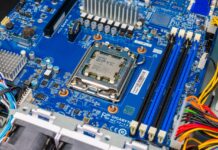
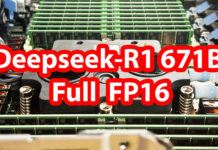
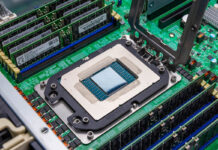
Holy hell at that c ray chart with all the EPYCs. That’s EPYC. Good job STH.
What you talked about some, but I think you can talk about more is that the $1100 cost to upgrade over the 7401P is worth it if you’ve got lots of drives and RAM in a virtualization server
Looks like a scam. Buy Intel.
“The only real competition we see on the AMD EPYC side is with the AMD EPYC 7401P.”
I think the competition are actually dual-socket EPYC 7281/7301.
Thanh – That is a good point on the dual EPYC 16 core competition. Moving to dual socket has some benefits, but costs more operationally.
I wonder why Dell enumerates CPUs in this strange way? To me it looks like they like to do SMP system from NUMA hence enforcing wrong mapping (seen that on my old HP 585 first gen. Option to enforce SMP behaviour although machine was 4 nodes numa). But w/o testing and looking into BIOS options this is hard to claim of course…
Still hoping mining/cryptonight benchmarking becomes standard test
Almost any way you look at EPYC, AMD is to be complimented for an outstanding engineering achievement!
Any thoughts on why AMD hasn’t picked up more market shares in DC? I am guessing because the lead time is way longer?
Or are they all waiting for Zen2?